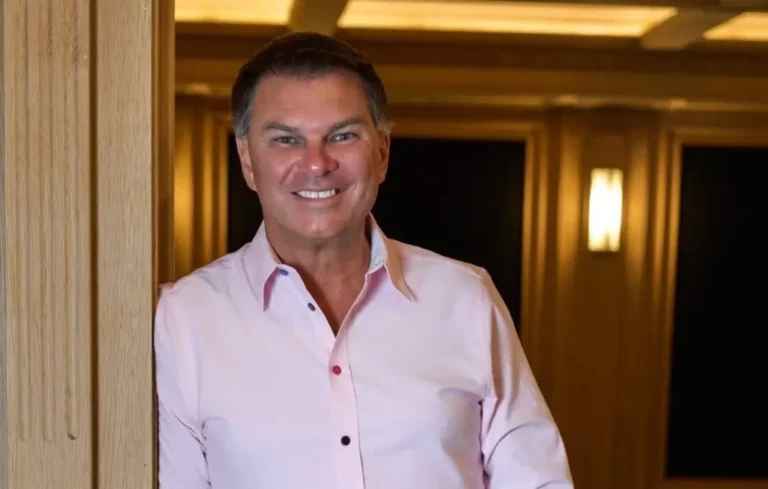As artificial intelligence reshapes marketing and communications, boards are facing important governance questions. How aggressively should companies invest in AI implementation, and who should be held accountable if the implementation goes awry?
Steve Netzley, Global CEO and Director of Prosé on Pixels, addresses these questions directly. At the helm of the world's largest full-service performance marketing group, Netsley is looking for ways to harness the potential of AI while protecting his company from new risks. This is a challenge that goes far beyond your own boardroom.
In the following Q&A, Netsley shares how boards are changing their composition and focus to support businesses operating at the intersection of creativity, data, and automation.
What are the most pressing topics that boards are grappling with these days?
Perhaps the most pressing topic we are currently addressing at board level is the role AI should play in shaping the future of business, whether through cost reduction, value creation, quality improvement, acceleration, or all of the above. We are actively debating how deeply we should invest in AI, what our return on investment models should look like, and how quickly we can realize those returns.
It's not just about deploying technology, it's about aligning it with strategic priorities to ensure it has a measurable impact across the organization. This conversation is as much about opportunity as it is responsibility, and we need to be thoughtful about how we deploy, manage, and scale AI.
How do you alleviate some of your company's toughest challenges?
We are mitigating where we can by clearly and honestly identifying gaps in experience, talent, services, tools, technology, etc., and prioritizing them based on their potential to drive near-term organic or new growth. Once these gaps are mapped, develop a targeted strategy with a given timeline and the investments needed to achieve the desired results.
Our world is changing at an unprecedented pace, and no company has unlimited capital to pursue every opportunity that arises from this change. That's why prioritization is important. We focus on what gives our clients the fastest profits and highest quality outcomes.
At the same time, we deeply value human capabilities. Technology can accelerate progress, but it is our people who shape it, guide it, and ultimately make it meaningful. It's a balancing act between ambition and pragmatism, and we're constantly recalibrating to align with both market changes and internal strengths.
What's new in the way we hire directors?
The type of expertise we are looking for in board members today is very different than what we were looking for five years ago. AI expertise has become essential not just in understanding the technology itself, but in shaping how to responsibly and strategically integrate it into business.
We also focus on people with operational backgrounds, particularly experience scaling complex systems and driving transformation.
Global systems experience is another priority, as we need leaders who understand how to build and manage interconnected infrastructure across markets and geographies. Having this type of expertise at board level is critical to guiding investment strategy, mitigating risk, ensuring resilience and increasing confidence in your ability to succeed.
It is important to build a board that not only has vision, but can act with precision and foresight.
How are boards responding to the opportunities and risks of emerging technologies?
I believe that addressing these two extremes requires thoughtful consideration and a high level of scrutiny. It starts with having a clear vision and using it as a filter to assess which innovations are worth exploring. With so many possibilities, staying focused and purposeful is the key to making meaningful progress.
Having the right people is also fundamental. People who can critically evaluate new technologies, separate hype from substance, and understand how each aligns with strategic goals are essential. Their expertise can help you avoid costly mistakes and ensure you invest your time and resources where they have real impact.
Ultimately, it's about balancing innovation and intention. Emerging technologies hold immense potential, but it's the human decisions behind them that will determine whether they become meaningful solutions or missed opportunities.
What is your strategy to keep your company resilient?
Resilience begins with accepting that the world is changing rapidly and unpredictably. Clinging to the status quo can leave you behind in your organization and chasing a future shaped by others. Instead, we choose to lean into change, seeing it as an opportunity to shape how our business, and our industry, evolves and delivers new growth.
That mindset requires two pillars: agility and intent. We invest in a test, learn, and optimize approach as our core operational strategy. This allows you to experiment with purpose, adapt quickly, and make decisions based on real data.
But resilience is also a human issue. It's about cultivating a culture that embraces curiosity, encourages bold thinking, and enables teams to challenge assumptions. When employees are able to navigate uncertainty with confidence and clarity, organizations become stronger and more responsive.
I believe resilience is built through a commitment to foresight, flexibility, and a willingness to evolve.

